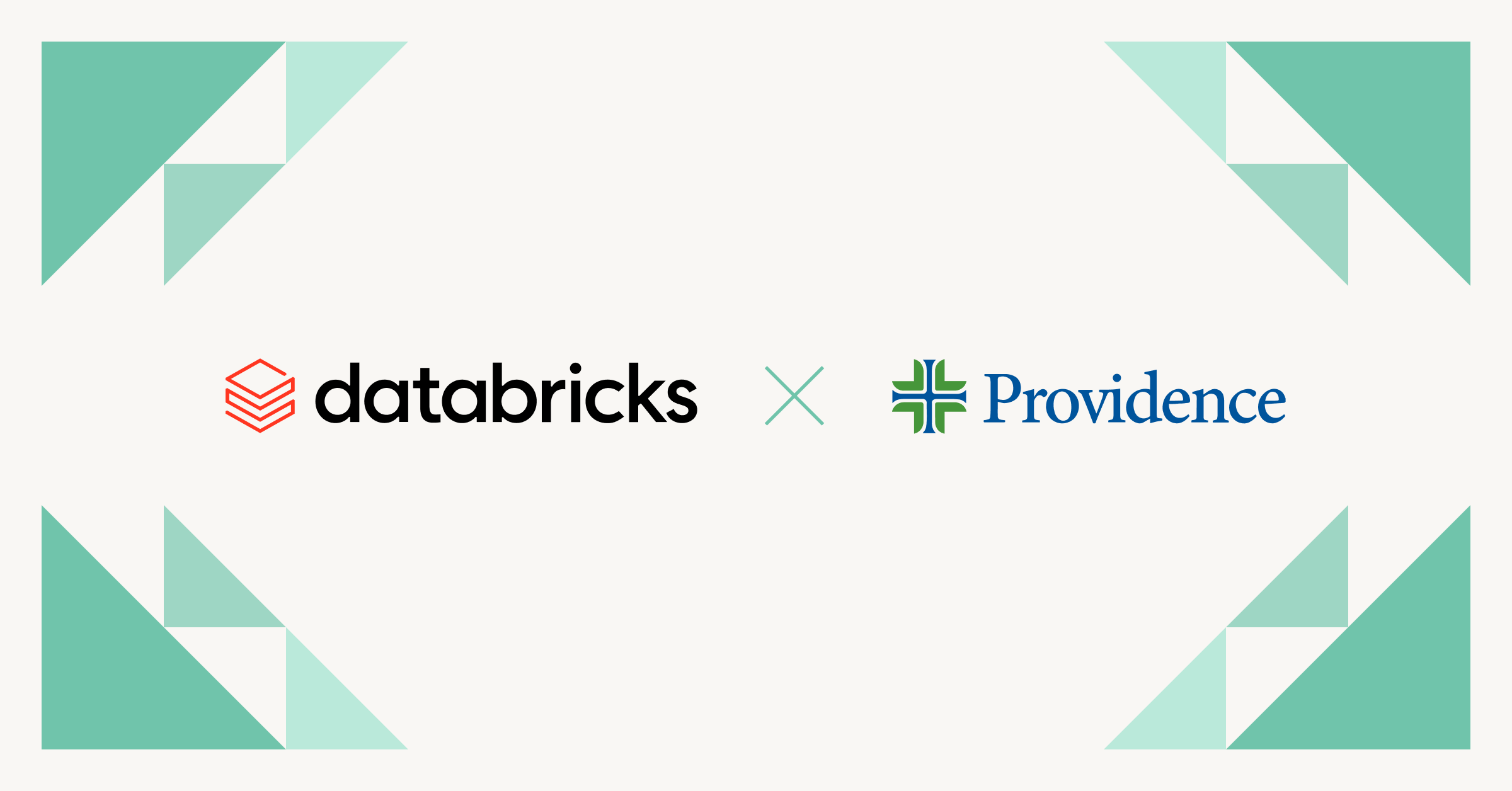Welldoc® and Databricks: Enhancing Cardiometabolic Care with Improved Data for Tailored Interventions

This blog was written in collaboration with Anand Iyer, PhD, MBA, Chief Analytics Officer and Abhi Kumbara, Data Science Manager at Welldoc
The intersection of cardiometabolic care and digital health represents a transformative landscape in modern healthcare. Cardiometabolic conditions are frequently marked by enduring long-term presence, requiring continuous care and contributing significantly to the economic burden on the healthcare system. These conditions, which include obesity, hypertension, diabetes, and heart disease, often coexist and synergistically elevate the risk of serious health complications. According to the CDC, 90% of the nation's $4.1 trillion in healthcare expenditures is for individuals living with chronic conditions and mental health conditions.
Digital health solutions have emerged as pivotal tools in the proactive and personalized management of cardiometabolic conditions, reshaping traditional healthcare paradigms. Wearable devices and connected medical devices enable continuous tracking of vital signs, activity levels, and other relevant health data. The real-time data capabilities offered by these digital health solutions empower healthcare providers to closely monitor patients outside of clinical settings, and with real-time digital coaching individuals can feel empowered to manage their health.
As the U.S. population continues to age and face evolving lifestyle trends, the burden of cardiometabolic conditions is likely to grow, making effective prevention and management strategies a critical imperative for the healthcare system and individuals alike.
The Challenge: Navigating the Healthcare Infrastructure Data Maze
As the variety of data sources increases, individuals are increasingly engaged in monitoring their health. The healthcare sector is facing numerous infrastructure challenges associated with this data, creating a complex environment for devising successful strategies for the prevention and management of cardiometabolic conditions including:
- Data Volume: The exponential growth of electronic health records (EHRs), wearable devices, and health monitoring technologies has led to a massive influx of health data.
- Data Management: Managing, storing, and extracting meaningful insights from this vast volume of information presents a significant hurdle.
- Security and Privacy: Balancing the security and privacy of sensitive patient data with its potential for improving patient care is a delicate task.
- Interoperability: Health data is often siloed across various systems that do not communicate effectively, hindering the creation of a comprehensive patient health history.
- Data Format Issues: Inconsistent data formats and standards further complicate data exchange between healthcare entities, potentially leading to suboptimal decision-making and care coordination.
Bridging the Gap to Extend Connected Care
When individuals receive real-time, personalized, artificial intelligence (AI)-driven coaching, they tend to be more engaged, making more positive micro-decisions about their daily health.
Welldoc's digital coaching platform is designed to provide personalized support and guidance to individuals managing cardiometabolic conditions. It combines AI with real-time data to create a dynamic and adaptable digital coaching experience. Welldoc's comprehensive chronic care platform provides multi-condition support across prediabetes, diabetes, hypertension, heart failure, and weight management, along with integrated mental wellbeing and sleep apnea support, supporting connected "care anywhere" and enabling health plans and health systems to extend face-to-face models.
The platform securely connects health data from 400+ devices and solutions such as BGM (blood glucose monitors), CGM (continuous glucose monitors), blood pressure cuffs, weight scales and smart wearables. The Welldoc platform adjusts to specific individual needs based on their conditions, comorbidities, health data, and goals.
The Opportunity: Connecting Meaningful Actionable Insights with Aggregated Data
The integration of Welldoc's digital coaching platform with the Databricks Data Intelligence Platform enhances personalized care through AI-driven digital health capabilities.
Databricks plays a crucial role in aggregating Welldoc's extensive and diverse data. Notably, Databricks consolidates data from various sources, including transactional records, Salesforce data, and chat messages to name a few, offering Welldoc the ability to create meaningful actionable insights for individuals using their AI-driven real-time digital coaching.
With this wealth of data, Welldoc's AI-powered digital coaching platform can provide individuals with highly personalized, data-driven recommendations to manage their cardiometabolic conditions. With seamless access to actionable data and insights, care teams make more timely and informed clinical interventions and decisions — optimizing communication and connection with individuals.
Databricks, complemented by its Power BI reporting capabilities, allows Welldoc to present data to partners at a population level, enabling health plans and systems to better understand segments of their population, enhance chronic care programs, and optimize outcomes.
This partnership between Welldoc and Databricks marks a significant milestone in healthcare infrastructure innovation, particularly in the development of:
- Unified Data Platform: Providing a single platform for all of Welldoc's data needs, enabling seamless reporting, analysis, and research.
- Delta Sharing: Allowing secure data sharing with partners, ensuring compliance with data privacy regulations, and scaling effortlessly.
Charting the Evolution: Databricks and Welldoc's Collaborative Future
Welldoc's AI meets the individual where they are with two types of learning—Rule-Based AI and Adaptive Machine Learning—that work in conjunction to provide real-time personalized insights and feedback. Welldoc is uniquely equipped to apply machine learning due to their FDA regulatory pathway. Their flagship product, BlueStar®*, within the Welldoc platform has been FDA-cleared as a Class II medical device, supporting safe and consistent delivery of higher-risk functionality, such as medication management. This paves the way to continue developing more powerful and advanced AI.
Looking ahead, Databricks Gen AI capabilities are anticipated to play a pivotal role as Welldoc explores integrating advanced AI features into their products. Leveraging the Unity Catalog, Welldoc can be confident in the robust data governance that aligns with the standards of an FDA-regulated software as a medical device company.
With Databricks' advanced data management tools, Welldoc is able to empower health plans, health systems, and individuals with personalized data-driven insights that optimize cardiometabolic care and promote total health advancement.
To learn more about Welldoc, visit www.welldoc.com.
*Welldoc Diabetes Rx/OTC is an FDA-cleared medical device ("BlueStar"), intended for use by healthcare providers and their adult patients with type 1 or type 2 diabetes. For full labeling information, visit www.welldoc.com. The other Welldoc products are non-FDA-cleared and intended to promote general wellness and education/self-management of various chronic disease states.
Never miss a Databricks post
Sign up
What's next?

Healthcare & Life Sciences
November 14, 2024/2 min read
Providence Health: Scaling ML/AI Projects with Databricks Mosaic AI

Product
November 27, 2024/6 min read